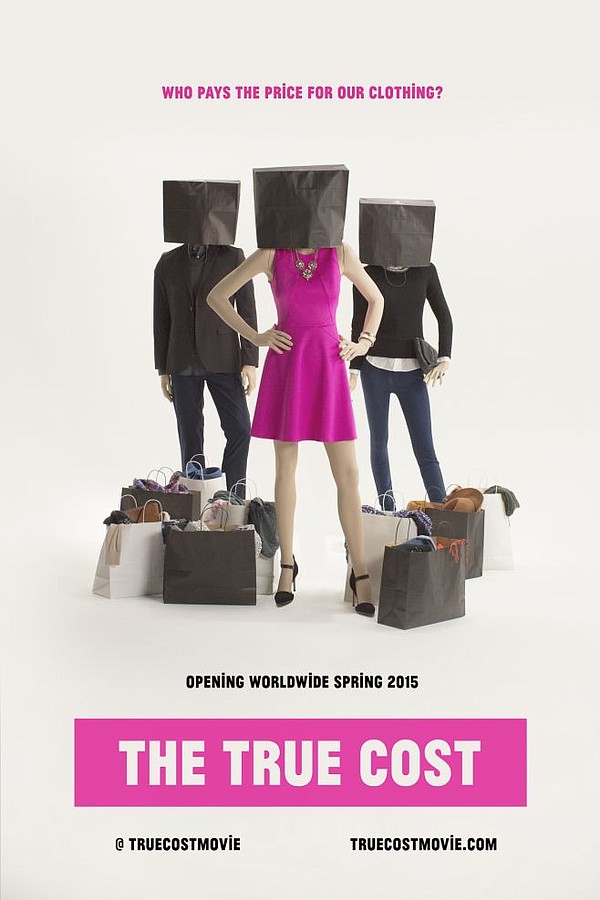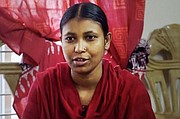The True Cost’s Case against Fast Fashion
With the preface “It’s a story about greed and fear, power and poverty,” The True Cost , a documentary, made its case against the fast fashion industry. It produced a Los Angeles premiere May 28 at the Laemmle’s Music Hall 3 in Beverly Hills. Calif.
Spending two years and traveling to 13 countries for this documentary, Andrew Morgan, its director, posits that fast fashion not only changed the fashion business. But it drives a system that pushes down wages for vulnerable garment workers in nations such as Bangladesh, India and Cambodia. It also wreaks havoc on the environment around the world, it overwhelms U.S. landfills with disposable clothes, and it degrades American consumers by making them part of a system that cannot be environmentally and economically sustained.
Similar arguments have been made in books such as Overdressed: The Shockingly High Cost of Cheap Fashion, which was published in 2012. But Morgan and his team put images to their crusading argument.
It juxtaposes news video of Black Friday crowds in a near-riot frenzy with weak, injured, Third World garment workers. Morgan also follows the life of Shima Akhter, a Bangladeshi garment worker who suffered working in a sweatshop. He also talks to those looking to change the business, such as LaRhea Pepper, director of Textile Exchange, an organic cotton group in Texas, and Safia Minney, founder and chief executive officer of People Tree, a sustainable and fair trade fashion label headquartered in the U.K.
The documentary ends with a call to action; consumers are urged to not support fast fashion, and to embrace the products of People Tree and similar companies with a credo of labor rights and an ecologically sustainable production.
Unfortunately, no fast fashion companies were interviewed. One of the most intriguing points made in the documentary was an interview with Barbara Briggs of the Institute for Labor Rights. She contended that the voluntary U.S. labor guidelines meant to protect overseas workers, in fact, do little to protect them. However, the high profile companies which set up these voluntary guidelines state that they take care of complaints of labor abuse in the recent past.
In 2007, Institute for Labor Rights helped sponsor a bill in the U.S. congress called Decent Working Conditions and Fair Competition Act, which they contend would have created stronger protections for workers, and perhaps would have avoided disasters such as the collapse of the Rana Plaza factory building in 2013 where more than 1,100 garment workers died in Bangladesh. But the bill was shot down by fashion industry lobbyists, and a weak system continues to work poorly, Briggs said. In a new development, news broke on June 1 that Bangladeshi police arrested Sohel Rana, the owner Rana Plaza, along with 42 other people for murder in connection with the collapse of the Rana Plaza building.
The Los Angeles premiere was attended by fashion notables such as Amber Valleta, Cameron Silver of Decades, a high end vintage boutique and Raan Parton of Apolis fashion label. The documentary was funded by a Kickstarter campaign and many of the donors were in the audience.
The documentary made a splash in major media around the globe. In a column, Vanessa Friedman of the New York Times critiqued The True Cost as biting more off than it could chew. It oversimplified its analysis of a major issue, and that its case would have been better served with a more focused argument. When asked for a comment on that column, Morgan, a Los Angeles resident, called Friedman a friend and refused to critique her point of view. “I made a film that felt honest and truthful,” Morgan said.
The True Cost will be screened for a week at Laemmle’s Music Hall. It also was screened in New York, Tokyo, and London. It also will be available on Amazon and iTunes and Netflix.
























